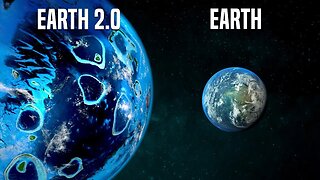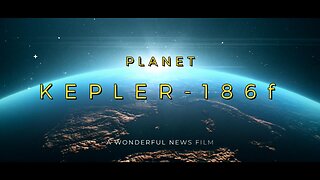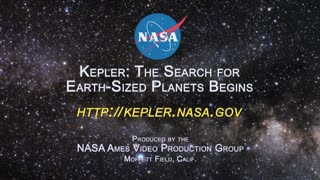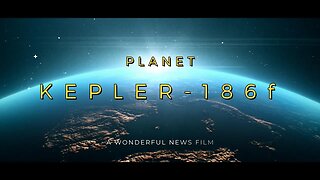NASA's Kepler Telescope Unveils Exoplanets More Habitable Than Earth
NASA's Kepler Telescope Unveils Exoplanets More Habitable Than Earth
In the vast expanse of space, the Kepler Space Telescope has played a crucial role in our quest to understand the universe. Since its launch in 2009, the Kepler Space Telescope has revolutionized our understanding of exoplanets, planets beyond our solar system.
Subscribe @Dailydoseoffact
In its nine-year mission, what if I told you that the telescope that was able to discover thousands of planets beyond our solar system, and even detect some of their atmospheres?
It has found thousands of exoplanets, planets outside our solar system, and has shed light on the possibility of extra-terrestrial life.
For nearly a decade, Kepler peered into the vast expanse of space, searching for tiny dips in brightness that could reveal the presence of planets orbiting distant stars. And what it found was nothing short of astonishing.
Its discoveries have challenged our beliefs about the universe and given us a glimpse into the possibility of life beyond our own planet. In this video, we will dive into the Kepler Space Telescope and the remarkable exoplanets it has found, unlocking the secrets of our universe.
Join me as we dive into the incredible journey of the Kepler Space Telescope and the discoveries it has made.
The discovery of exoplanets has opened a whole new world of possibilities in our quest for understanding the universe. The different types of exoplanets that have been discovered so far offer a glimpse into the diverse nature of planetary systems in our galaxy.
From gas giant planet that orbits very close to its star which planets have scorching temperatures and extreme weather conditions, including violent storms and winds. Another type of exoplanet is the Super-Earth, which is a planet that has a mass and radius between that of Earth and Neptune. Super-Earths are often rocky and may have liquid water on their surface, making them potential candidates for habitability.
The Earth-like exoplanets are planets that are similar in size and composition to Earth. These planets could potentially have similar climates and environments to Earth, making them strong candidates for habitability.
One of the most notable exoplanets discovered by the Kepler Space Telescope is Kepler-452b. This planet is about 1.6 times the size of Earth and is located in the habitable zone of its star, which means it could have liquid water on its surface. This discovery was particularly exciting as it represents one of the best candidates for finding extraterrestrial life.
Another interesting exoplanet discovered by the Kepler Space Telescope is Kepler-16b, which is a gas giant that orbits two stars, much like the fictional planet Tatooine from the Star Wars franchise. This was the first time a planet had been discovered orbiting two stars, and it has led to a greater understanding of the potential for planetary systems to exist in multiple-star systems.
Kepler-22b is another noteworthy exoplanet discovered by the Kepler Space Telescope. It is about 2.4 times the size of Earth and is located in the habitable zone of its host star. This exoplanet was particularly exciting as it was the first confirmed planet in the habitable zone of a sun-like star, which increased the possibility of finding other potentially habitable planets in the future.
In addition to these exoplanets, the Kepler Space Telescope has also discovered a variety of other interesting planetary systems, including planets with extremely short orbital periods, planets with unusual orbits, and planets with strange compositions.
Overall, the Kepler Space Telescope has been a game-changer in the search for exoplanets and has greatly expanded our understanding of the diversity and prevalence of planets in our galaxy. Its discoveries have paved the way for future missions, such as NASA's upcoming James Webb Space Telescope, which will be able to study the atmospheres of exoplanets in greater detail and potentially detect signs of life on other planets.
--------
"NASA's Kepler Telescope Unveils Exoplanets More Habitable Than Earth!"
"Breaking News: Kepler Discovers New Planets Teeming with Life Potential"
"Exoplanet Extravaganza: NASA Finds Worlds Surpassing Earth's Habitability"
"Life Beyond Earth: Kepler Telescope's Groundbreaking New Planet Discoveries"
"NASA's Big Reveal: Exoplanets Even More Perfect for Life Than Our Home Planet"
"Kepler's Epic Discovery: Unveiling New Planets That Could Host Advanced Life"
"The Great Exoplanet Hunt: NASA's Kepler Telescope Finds Life's New Frontier"
"Kepler's Cosmic Breakthrough: New Planets with Unprecedented Potential for Life"
"Discovering Earth's Superior Twins: NASA's Kepler Telescope Uncovers New Worlds"
"NASA's Kepler Finds Game-Changing Exoplanets: Welcome to Our Future Galactic Homes"
-
 1:35
1:35
Knowledge Land
1 year agoOver 5,000 Exoplanets Discovered by NASA...and more to come
154 -
 28:06
28:06
MYSTERIOUSREALITIESNOW
11 months agoUnearthed Realities NASA Exoplanet Discovery Uncovers Super Habitable Worlds
66 -
 1:49
1:49
B.C. Begley
1 year agoAstronomers discover potential habitable exoplanet only 31 light-years from Earth
16 -
 1:35
1:35
Seeker Land
1 year agoNASA Confirms Over 5,000 New Planets Found...And Counting
193 -
 3:49
3:49
shred15
8 months agoLife on Kepler-186f: The First Habitable Planet…
46 -
 15:44
15:44
NASA Videos Plus
8 months agoJames Webb Telescope Finds Signs of Life on Exoplanet K2-18b that's Only 120 Lightyears Away
561 -
 10:35
10:35
zeeekhan
9 months agoKepler: The Search for Earth-Sized Planets Begins
161 -
 1:56
1:56
B.C. Begley
3 months agoNASA announces new ‘super-Earth’ exoplanet that orbits in habitable zone
62 -
 3:49
3:49
shred15
8 months agoKepler-186f: Could It Be an Abode for Life Beyond Our Planet? #exoplanets
56 -
 4:42
4:42
Up and Atom Archive Channel
1 year agoThe NASA TRAPPIST-1 Exoplanets - 7 Earth Like Worlds Discovered
4